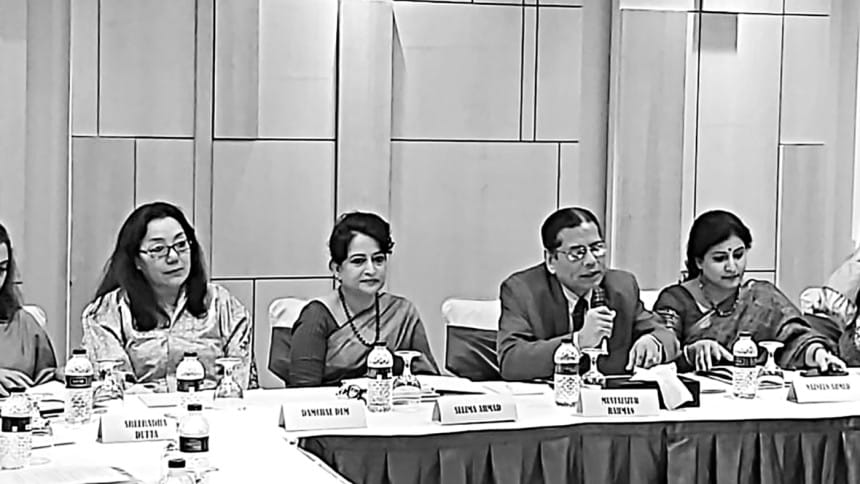Analysts call for faster implementation

The Bangladesh, Bhutan, India and Nepal Motor Vehicles Agreement (BBIN MVA) should be implemented fast to integrate the sub-region for prosperity of over 1.5 billion people, analysts said yesterday.
The framework agreement was signed in 2015 but is yet to be implemented for infrastructure deficit, differences in regulations and trust deficit among signatories, they said.
They spoke at a dialogue titled “Connectivity and trade facilitation in the BBIN sub-region of the Indo-Pacific” at a hotel in the capital.
The event was jointly organised by CUTS International, a global public policy research and advocacy group; Unnayan Shamannay, Bhutan Media and Communications Institute and Nepal Economic Forum with support of the US Department of State.
Bipul Chatterjee, executive director of CUTS International, said while the BBIN MVA will directly and indirectly benefit the economies of these countries, there is an imperative to look beyond the agenda of building roads and simple exchange of traffic rights.
“It should be enabled with appropriate regulatory, financial and digital connectivity among individuals, businesses and government if we are to unlock the true potential of the economic integration with each other,” he said.
Chatterjee hopes the implementation of the BBIN MVA is expected to commence from the beginning of 2020. Atiur Rahman, chairman of Unnayan Shamannay, said Bangladesh has always been in favour of open regionalism and the present political equations among the governments of these countries are conducive towards an effective implementation of the BBIN MVA.
Pete Gauthier, private enterprise officer at the Economic Growth Office of the US Agency for International Development, Bangladesh, mentioned that any sub-regional cooperation should always look at how to create a win-win situation for all stakeholders involved and hence should aim at growing the pie instead of splitting it.
Mohammad Razzaque, research director of the Policy Research Institute of Bangladesh, said, “There should be clarity among the policymakers on why a policy has been framed.”
There is no point in improving border infrastructure if countries keep resorting to various trade restrictive measures, he said.
Selima Ahmed, a lawmaker and president of the Bangladesh Women Chamber of Commerce and Industry, and Prof Mustafizur Rahman, distinguished fellow of the Centre for Policy Dialogue, also took part in the discussion among others.
More than 40 people comprising government officials, policy experts, civil society representatives and media personnel participated at the event.

 For all latest news, follow The Daily Star's Google News channel.
For all latest news, follow The Daily Star's Google News channel. 



Comments